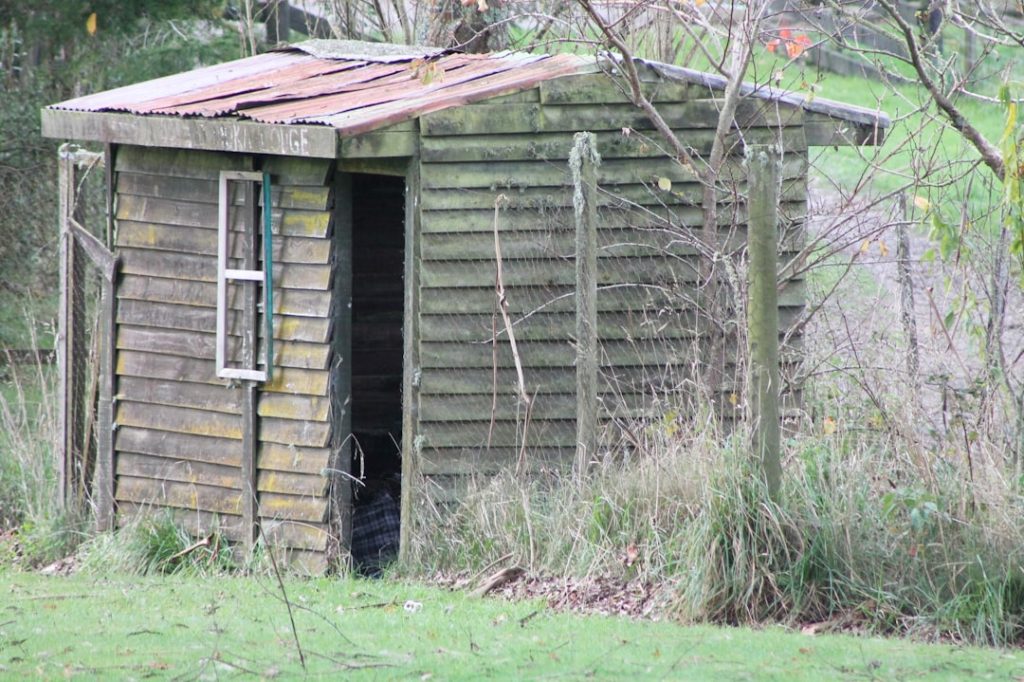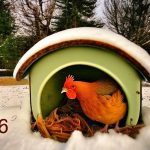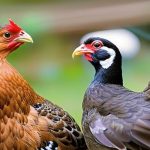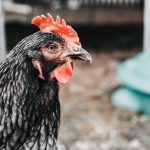When selecting chicken breeds for your poultry operation, several key factors should be considered. The primary purpose of raising chickens, whether for eggs, meat, or both, is a crucial consideration. Egg-laying breeds are specifically bred for high egg production, while meat breeds are optimized for rapid growth and meat quality.
Dual-purpose breeds offer a balance between egg and meat production. Climate and environmental conditions play a significant role in breed selection. Some breeds are better adapted to cold climates, while others thrive in warmer regions.
Choosing breeds suited to your local climate ensures better health and productivity. Temperament is another important factor. Certain breeds are known for their docile nature, making them ideal for backyard settings, while others may have more aggressive tendencies better suited for free-range or farm environments.
Specific breed characteristics and requirements should be thoroughly researched. Egg-laying capabilities vary among breeds, with some known for high production rates or unique egg colors. Meat breeds differ in growth rate, size, and meat quality.
Understanding these traits helps align breed selection with production goals. Available space and resources must be considered. Some breeds adapt well to confinement and smaller spaces, while others require more room to roam and forage.
Assessing your available space and resources ensures you choose breeds that will thrive in your specific setup. Lastly, consider the availability of breeds in your area. Some may be more readily accessible than others, and it’s important to select breeds that you can easily obtain and maintain.
By carefully evaluating these factors, you can make an informed decision when selecting chicken breeds that will best suit your needs and contribute to the success of your poultry venture.
Table of Contents
- 1 Building a Suitable Coop
- 2 Providing Proper Nutrition
- 3 Maintaining Cleanliness and Hygiene
- 4 Monitoring Health and Wellness
- 5 Managing Waste and Byproducts
- 6 Ensuring Safety and Security
- 7 FAQs
- 7.1 What are the basic requirements for keeping 1000 feeder chickens?
- 7.2 What type of housing is suitable for 1000 feeder chickens?
- 7.3 What kind of feeding and watering equipment is needed for 1000 feeder chickens?
- 7.4 What type of feed is suitable for 1000 feeder chickens?
- 7.5 What are the common health issues to watch out for when keeping 1000 feeder chickens?
- 7.6 What are the key factors to consider for the successful management of 1000 feeder chickens?
Key Takeaways
- Choose chicken breeds that are suitable for your climate and purpose, such as egg-laying breeds or meat breeds.
- Build a coop that provides enough space for the number of chickens you have, with proper ventilation and protection from predators.
- Provide a balanced diet for your chickens, including a mix of grains, protein, and access to fresh water and grit for digestion.
- Keep the coop clean by regularly removing droppings and soiled bedding, and maintain good hygiene to prevent diseases.
- Monitor your chickens’ health regularly, looking out for signs of illness or distress, and seek veterinary care when needed.
- Manage waste and byproducts such as manure and eggs shells properly, either through composting or disposal.
- Ensure safety and security by using sturdy fencing, locking coop doors at night, and providing shelter from extreme weather conditions.
Building a Suitable Coop
Size and Space Requirements
The general rule of thumb is to provide at least 2-3 square feet of space per chicken inside the coop, and 8-10 square feet per chicken in the outdoor run area. This allows for ample space for the chickens to move around, roost, and nest comfortably.
Ventilation, Lighting, and Design
Proper ventilation is crucial for maintaining good air quality and preventing moisture buildup, which can lead to respiratory issues and other health problems in chickens. Natural light is also important for the well-being of chickens, as it helps regulate their internal clocks and promotes healthy egg production. The layout and design of the coop should be carefully considered to provide adequate ventilation and natural light.
Materials, Security, and Predator-Proofing
The coop should be constructed with sturdy materials that can withstand the elements and provide security for the chickens. Predator-proofing measures such as secure latches, hardware cloth, and fencing should be implemented to prevent access from predators such as raccoons, foxes, and birds of prey. Providing a secure and predator-proof coop is essential for keeping your chickens safe and minimizing the risk of harm or loss.
Coop Placement and Environmental Considerations
Lastly, consider the placement of the coop within your property. The coop should be situated in a well-drained area with good sunlight exposure and protection from harsh weather conditions. By carefully considering these factors and building a suitable coop, you can provide a safe and comfortable home for your chickens to thrive.
Providing Proper Nutrition
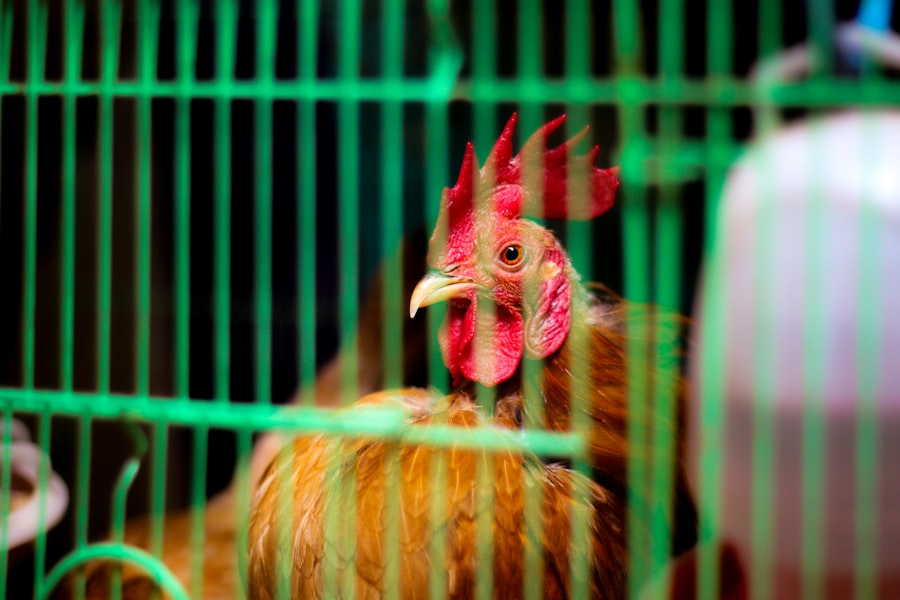
Providing proper nutrition is essential for the health and productivity of your chickens. A well-balanced diet is crucial for supporting egg production, growth, and overall well-being. When it comes to feeding chickens, there are several key considerations to keep in mind to ensure that they receive the nutrients they need.
First and foremost, provide a high-quality commercial feed that is specifically formulated for chickens. These feeds are designed to meet the nutritional requirements of chickens at different stages of life, whether they are chicks, pullets, layers, or broilers. Look for feeds that contain a balanced mix of protein, carbohydrates, vitamins, and minerals to support optimal growth and performance.
In addition to commercial feed, it’s important to supplement your chickens’ diet with fresh fruits and vegetables, as well as access to grit and oyster shell. Fresh fruits and vegetables provide additional nutrients and variety to their diet, while grit aids in digestion by helping chickens break down food in their gizzards. Oyster shell is an important source of calcium that helps support strong eggshells in laying hens.
Additionally, provide access to clean water at all times to ensure proper hydration and overall health. Clean water is essential for digestion, temperature regulation, and overall well-being in chickens. By providing a well-balanced diet that includes commercial feed, fresh fruits and vegetables, grit, oyster shell, and clean water, you can ensure that your chickens receive the proper nutrition they need to thrive.
Maintaining Cleanliness and Hygiene
Maintaining cleanliness and hygiene in your chicken coop is essential for preventing disease, promoting good health, and ensuring the well-being of your flock. A clean and sanitary environment helps minimize the risk of bacterial and parasitic infections that can negatively impact the health and productivity of your chickens. When it comes to maintaining cleanliness in the coop, there are several key practices to keep in mind.
First and foremost, regularly remove soiled bedding and replace it with fresh bedding to prevent moisture buildup and ammonia levels from rising. Clean bedding helps absorb droppings and moisture, keeping the coop dry and odor-free. Additionally, regularly clean feeders and waterers to prevent bacterial contamination and mold growth.
Clean waterers help ensure that chickens have access to clean water at all times, while clean feeders prevent spoilage and contamination of feed. Furthermore, regularly clean nesting boxes to provide a clean environment for egg-laying hens. Dirty nesting boxes can lead to dirty eggs and increase the risk of egg contamination.
By keeping nesting boxes clean and providing fresh bedding, you can help maintain egg quality and reduce the risk of disease transmission. In addition to regular cleaning practices, it’s important to implement biosecurity measures to prevent the introduction and spread of diseases in your flock. This includes limiting visitors to the coop, quarantining new birds before introducing them to your existing flock, and practicing good hygiene when handling chickens or their equipment.
By maintaining cleanliness and practicing good hygiene in your chicken coop, you can help promote good health and well-being in your flock.
Monitoring Health and Wellness
Monitoring the health and wellness of your chickens is essential for early detection of potential issues and prompt intervention when necessary. Regular observation and monitoring of your flock can help identify signs of illness or distress before they escalate into more serious problems. When monitoring the health of your chickens, there are several key indicators to keep an eye on.
First and foremost, observe their behavior and activity levels on a daily basis. Healthy chickens are typically active, alert, and engaged in normal behaviors such as pecking, scratching, dust bathing, and socializing with other flock members. Additionally, pay attention to their physical appearance and condition.
Look for signs of abnormal posture or movement, changes in feather quality or coloration, abnormal growths or lesions, or any other physical abnormalities that may indicate an underlying health issue. Furthermore, monitor their eating and drinking habits to ensure that they are consuming food and water regularly. Sudden changes in appetite or water consumption can be indicative of health problems such as digestive issues or dehydration.
In addition to regular observation, it’s important to conduct routine health checks on your flock to assess their overall condition. This includes checking their eyes, nostrils, beak, comb, wattles, legs, feet, vent area, and overall body condition for any signs of abnormalities or illness. By regularly monitoring the health and wellness of your flock through observation and routine health checks, you can identify potential issues early on and take appropriate measures to address them.
Managing Waste and Byproducts
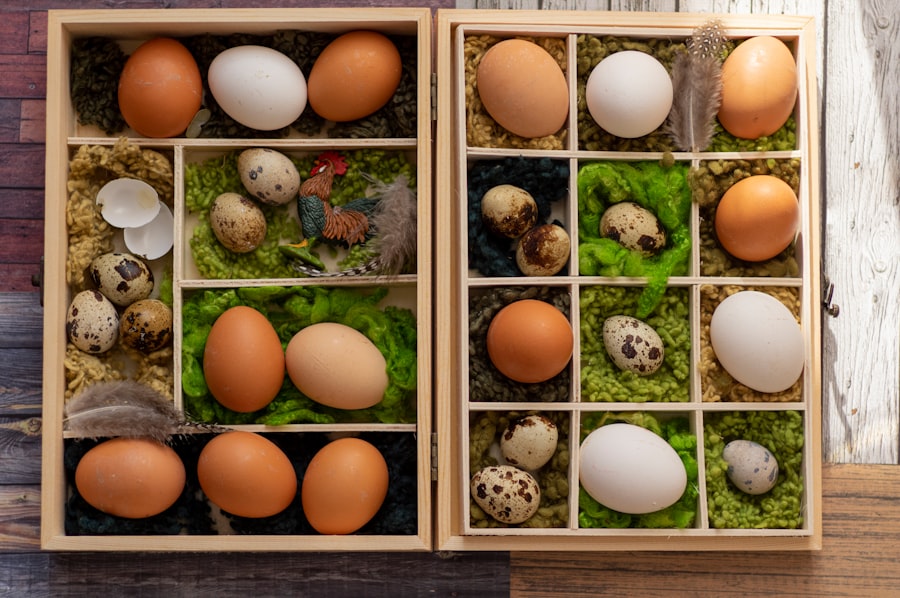
Removing Soiled Bedding and Composting Waste
Regularly removing soiled bedding from the coop is essential to prevent ammonia buildup and maintain a clean living environment for your chickens. Implementing a composting system for chicken waste can recycle it into valuable fertilizer for your garden or landscaping. Composting chicken waste helps reduce environmental impact by diverting organic matter from landfills while producing nutrient-rich compost that can be used to improve soil fertility and plant growth.
Deep Litter Bedding Systems and Byproduct Disposal
Incorporating deep litter bedding systems into your coop design can naturally manage waste while providing insulation and microbial activity that helps break down organic matter over time. Additionally, consider how you will dispose of other byproducts such as eggshells or feathers. Eggshells can be crushed and added back into the feed as a calcium supplement for laying hens or used as a soil amendment in gardening applications.
Minimizing Environmental Impact
By carefully managing waste and byproducts from your chicken operation through regular cleaning practices, composting systems, deep litter bedding systems, and responsible disposal methods for other byproducts, you can minimize environmental impact while maintaining a clean living environment for your flock.
Ensuring Safety and Security
Ensuring safety and security for your flock is essential for protecting them from potential threats such as predators or environmental hazards while promoting peace of mind for you as a chicken owner. When it comes to ensuring safety for your flock from predators such as raccoons or foxes that may pose a threat to their well-being, consider implementing predator-proofing measures such as secure fencing, hardware cloth on windows, and locking mechanisms on doors or access points. Additionally, consider providing adequate shelter or cover within the outdoor run area where chickens can seek refuge from potential threats.
Furthermore, consider implementing environmental safety measures such as providing shade during hot weather, protection from extreme weather conditions, and ensuring proper ventilation within the coop. In addition to physical safety measures, consider implementing biosecurity protocols such as limiting visitor access, quarantining new birds before introducing them into your existing flock, and practicing good hygiene when handling chickens or their equipment. By ensuring safety measures are in place, you can protect your flock from potential threats while promoting a secure living environment that supports their well-being.
In conclusion, raising chickens requires careful consideration of various factors such as choosing the right breeds, building a suitable coop, providing proper nutrition, maintaining cleanliness, monitoring health, managing waste, and ensuring safety. By carefully addressing these aspects, you can create a healthy, productive, and sustainable environment for your flock while promoting their overall well-being. Whether you are raising chickens for eggs, meat, or both, taking these considerations into account will set you up for success in your chicken-raising endeavors.
If you’re looking to keep a large number of feeder chickens, you may want to consider turning a shed into a chicken coop. This article from Poultry Wizard provides helpful tips and guidance on how to convert a shed into a suitable living space for your chickens. With the right setup, you can efficiently manage and care for a large flock of chickens, ensuring they have enough space, ventilation, and protection from predators. Check out the full article here.
FAQs
What are the basic requirements for keeping 1000 feeder chickens?
To keep 1000 feeder chickens, you will need a suitable housing facility, proper ventilation, feeding and watering equipment, and a reliable source of feed.
What type of housing is suitable for 1000 feeder chickens?
A suitable housing facility for 1000 feeder chickens should provide adequate space for the birds to move around, roost, and access feed and water. It should also have proper ventilation and be designed to protect the birds from predators and harsh weather conditions.
What kind of feeding and watering equipment is needed for 1000 feeder chickens?
Feeding equipment for 1000 feeder chickens may include feeders that can hold a sufficient amount of feed and minimize waste. Watering equipment should provide clean and accessible water for the birds at all times.
What type of feed is suitable for 1000 feeder chickens?
The feed for 1000 feeder chickens should be formulated to meet their nutritional requirements at different stages of growth. It should include a balanced combination of protein, carbohydrates, vitamins, and minerals.
What are the common health issues to watch out for when keeping 1000 feeder chickens?
Common health issues to watch out for when keeping 1000 feeder chickens include respiratory diseases, parasites, and nutritional deficiencies. Regular monitoring, proper sanitation, and access to veterinary care are important for maintaining the health of the birds.
What are the key factors to consider for the successful management of 1000 feeder chickens?
Successful management of 1000 feeder chickens requires careful planning, attention to detail, and adherence to best practices in poultry husbandry. Factors to consider include biosecurity, disease prevention, and efficient feed and water management.
Meet Walter, the feathered-friend fanatic of Florida! Nestled in the sunshine state, Walter struts through life with his feathered companions, clucking his way to happiness. With a coop that’s fancier than a five-star hotel, he’s the Don Juan of the chicken world. When he’s not teaching his hens to do the cha-cha, you’ll find him in a heated debate with his prized rooster, Sir Clucks-a-Lot. Walter’s poultry passion is no yolk; he’s the sunny-side-up guy you never knew you needed in your flock of friends!

